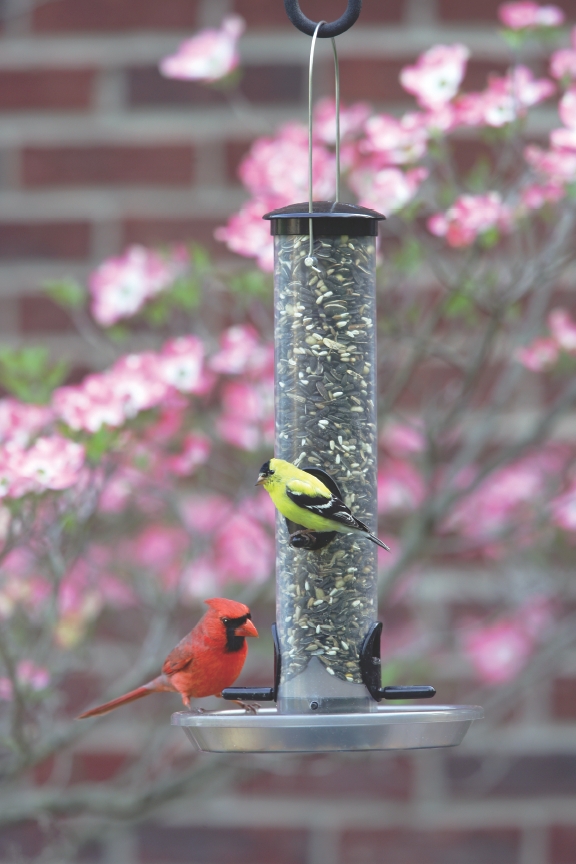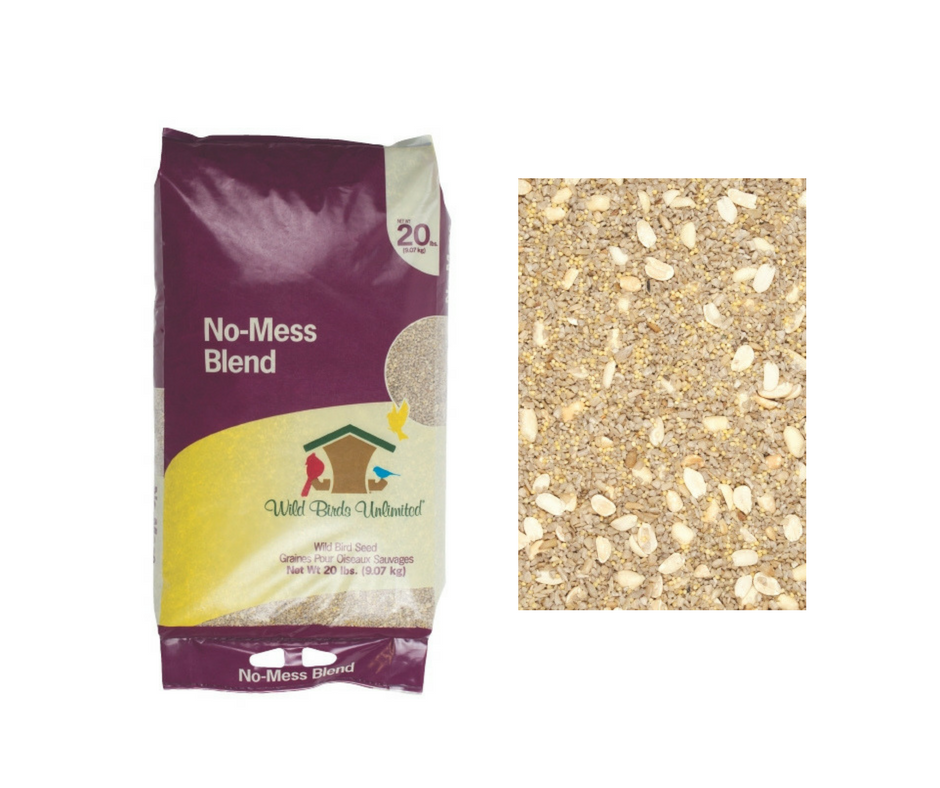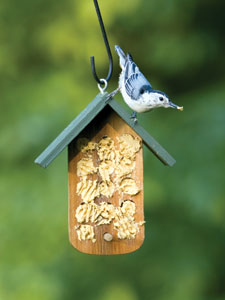The onset of autumn is a great time to check your feeding stations for cleanliness and functionality. With feeding the birds comes the responsibility to reduce the risk of disease and illness and keeps pests away (this is good for your birds and for you)! The following tips should help you achieve these goals.

This time of year, I find the non-migrant birds such as Chickadees, Cardinals, House Finches, and Nuthatches come to the feeders less often, as they feast on the natural foods that are in abundance. Once those seeds and insects start to lessen, birds look to supplement their diet with feeder offerings. The most favored seed option to offer is black oil sunflower, preferred by more birds than any other seed. Using sunflower as the main seed in a blend and adding other favored seeds including white proso millet will satisfy the needs of the local bird population as well as the migrants. Birds that perch while they eat prefer the sunflower, whereas the ground feeding birds (like doves, juncos, and certain sparrows) prefer the millet that falls to the ground from the feeder.
 Choosing high-quality seed is the most important factor in crafting your tidy feeding station. The birds toss aside seeds they do not prefer, which leaves a food source for rodents. Check the ingredients within your seed blends and do not buy any blends with wheat, red proso millet, canary seed or oats as these seeds are not high on the list of bird’s favorites. A No-Mess Blend can be the best option for a pest-free, clean feeding station. With no shells under the feeder, there is no place for insects that gather under the decomposing shells. If you live near large groups of House Sparrows, it is definitely a challenge to keep seed off of the ground. If this is your situation, consider feeding only thistle, suet or seed cakes, which leave less mess. Cylinder feeding is another option for reducing seed debris, as the seed stays tightly packed in is cylinder form as opposed to loosely falling to the ground.
Choosing high-quality seed is the most important factor in crafting your tidy feeding station. The birds toss aside seeds they do not prefer, which leaves a food source for rodents. Check the ingredients within your seed blends and do not buy any blends with wheat, red proso millet, canary seed or oats as these seeds are not high on the list of bird’s favorites. A No-Mess Blend can be the best option for a pest-free, clean feeding station. With no shells under the feeder, there is no place for insects that gather under the decomposing shells. If you live near large groups of House Sparrows, it is definitely a challenge to keep seed off of the ground. If this is your situation, consider feeding only thistle, suet or seed cakes, which leave less mess. Cylinder feeding is another option for reducing seed debris, as the seed stays tightly packed in is cylinder form as opposed to loosely falling to the ground.

Regular cleanup efforts can also make for a happier and healthier clean bird feeding station. One way to alleviate messes is to attach a tray to your feeder, which catches seeds scattered by the sparrows and other feeder birds (we’re convinced they are trying to share with their brethren below!). No matter what, there will always be a least a small amount of loose seed which falls to the ground. Try to clean up any seed which has been sitting on the ground for long periods of time, as this can collect droppings, mold, and other germs which can negatively affect the birds. A hardware cloth or screen placed on the ground below the feeders can allow for a much easier cleanup. Simply pull away the cloth or screen, dispose of the seed, rinse or replace, and repeat as needed. Mulch can also be used on top of landscape cloth. When seed collects, roll it up and place dirty mulch and cloth in composting pick-up. Start fresh for the best health of your birds.
Cleaning and sterilizing feeders should be done when you notice the feeder is getting dirty, that is whenever feeders have an accumulation of bird droppings. A good soak in some warm water will loosen all of the dirt that builds up in most tube feeders. We carry an excellent soy-based cleaner that works very well to clean feeders of oil that builds up as a result of seed as well as removing the accumulation of dirt. We also carry cleaning brushes with soft bristles, allowing you to scrub without scratching the feeders. To sterilize, add one part of vinegar or chlorine free bleach to ten parts water. Always rinse thoroughly and then let the feeder dry completely before filling. With a wooden feeder, follow the same steps without a prolonged soak. A good alternative to wood is the recycled plastic feeders that are now being made. The plastic does not allow organic material to grow as readily as wood does.

Store seeds in galvanized cans inside of the garage or a shed. Storing seed in the house can be a bad idea, as the higher temperatures of our homes can prompt cereal moths to hatch. These moths come from eggs laid in the seed shells of the sunflower plant as it grows in the field. We recommend galvanized cans, as rodents are able to chew through plastic. Whether the little teeth of mice or the larger teeth of squirrels, plastic is ineffective at keeping rodents out.
I hope that these tips help you to enjoy the influx of fall migrants as well as the continued visits of your local birds.
Enjoy your birds!
Rosann Kovalcik
Store Owner, Wild Birds Unlimited, GPW
